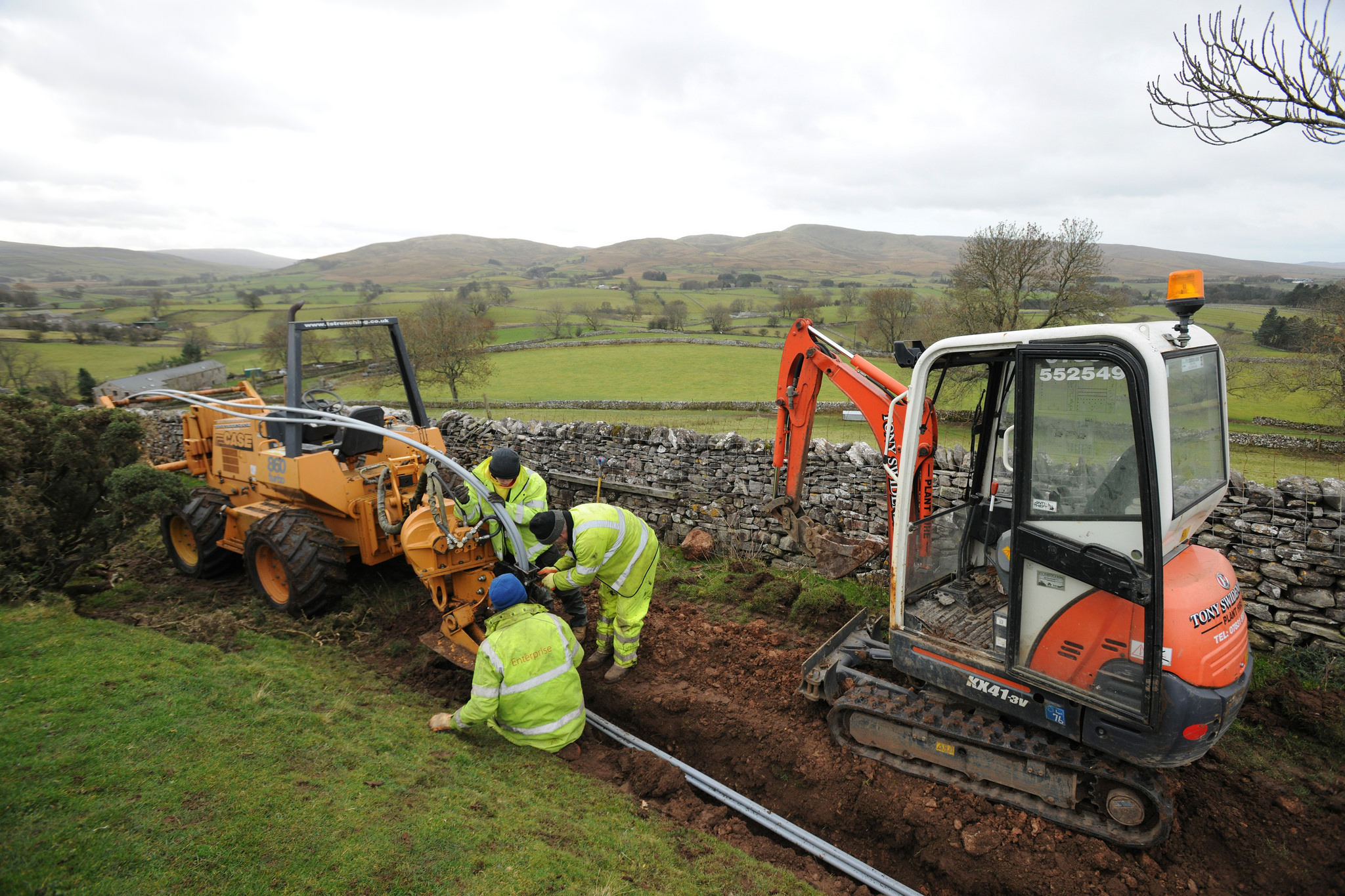

The government has announced a ‘£440m windfall’ to help wire up 600,000 extra homes and businesses to superfast broadband.
It said the money would be used to extend superfast broadband to the final five percent, homes and businesses in the hardest to reach parts of the United Kingdom.
It comes after an Ofcom report earlier this month revealed that 1.4 million homes and businesses – around five percent of properties – are still unable to sign up for decent broadband speeds. The same report did however find that the so-called digital divide has fallen by one million people over the last 12 months.
The Department for Culture, Media and Sport said this week that the “cash boost is a combination of efficiency savings and a clawback mechanism which re-invests money when people take up superfast connections installed by the Broadband Delivery UK project.”
It seems the money has stemmed from a £292 million refund from BT, as well as £150m in cost savings achieved by BT. The refund is down to the BDUK agreement with BT back in 2010. That original deal saw the government pay BT to rollout superfast broadfast in hard-to-reach areas.
Remember, BT only initially funded a rollout of superfast broadband to those areas that it deemed economically viable (roughly 66 percent of the UK). That 66 percent was mostly located in urban areas, and that decision left large swathes of rural areas without superfast broadband access.
Under the BDUK scheme however (whereby the government and local councils, as well as BT all contributed money to deploy superfast in these rural areas), BT promised to repay the government some of the subsidy if more than 20 percent of premises in those areas signed up to superfast broadband.
And it seems that on average, the take-up has been 30.6 percent, meaning BT is repaying £292m. BT has also saved more than £150 million across 44 projects as the first phase of rollout draws to a close. It means a total of £442 million can now be reinvested in taking superfast speeds to some of the most remote parts of the country.
ISPA Chair James Blessing commented: “Today’s announcement of reinvested funds under the BDUK claw back mechanism and through efficiencies is good news. It reflects the increased demand and importance of broadband in our society, something which our members’ hard work and innovation in their networks is helping to facilitate. To help improve the broadband of the very hardest-to-reach, opportunities should involve as wide a range of providers and technologies as possible.”
“Our Broadband Delivery UK programme is giving families and businesses in hard-to-reach areas the fast and reliable internet connections which are increasingly at the heart of modern life,” said Culture Secretary Karen Bradley.
“Strong take-up and robust value-for-money measures mean £440 million will be available for reinvestment where it matters – putting more connections in the ground,” she said. “This will benefit around 600,000 extra premises and is a further sign of our commitment to build a country that works for everyone,” said Bradley. “We have made great progress but there is still more to do.”
And she encouraged more people to sign up to superfast broadband so that consumers will get a “better service.”
A couple of months ago BT boosted the broadband speeds of 46,000 UK businesses to 76Mbps on its Business Infinity connection.
What do you know about fibre broadband? Try our quiz!
American space agency prepares for testing of Boeing's Starliner, to ensure it has two space…
As UK and Europe develop closer military ties, European Commission says it will invest €1.3…
Zuckerberg seeks to revive Facebook's original spirit, as Meta launches Facebook Friends tab, so users…
Notable development for Meta, after appeal against 2021 WhatsApp privacy fine is backed by advisor…
First sign of shake-up under new CEO Lip-Bu Tan? Three Intel board members confirm they…
Trump's nominee for SEC Chairman, Paul Atkins, has pledged a “rational, coherent, and principled approach”…